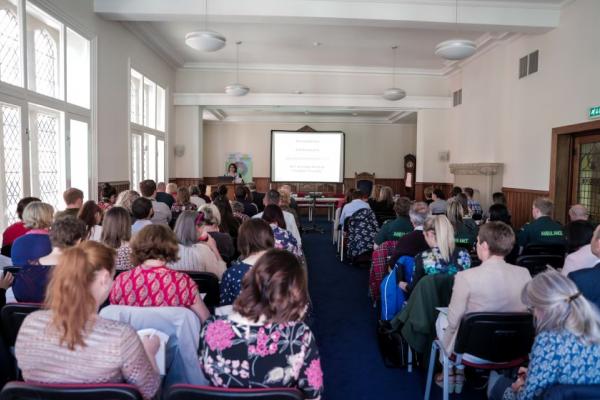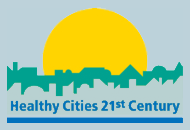Health Literacy Seminar - Wednesday 19 June 2019

Health policy experts from across the UK and Ireland were in Belfast yesterday to examine best practice in public policy on Heath Literacy. Health Literacy has been recognised by the World Health Organization as a priority in the next phase of the European Healthy Cities Network programme of work 2019 - 2024.
In Northern Ireland, Health Literacy is now a key element of central policy in the Department of Health and at local government level health literacy is a priority in Community Plans of the 11 Councils.
Low levels of health literacy are associated with poorer access to health services, poorer communication with health-care professionals, lower adherence to treatment and poorer self-management of health conditions. Improved health literacy could therefore contribute to reducing health inequalities, strengthen health and improve health-care efficiency.
Joan Devlin, Chief Executive of Belfast Healthy Cities, explained the importance of Health Literacy.
“WHO research shows that people with low health literacy make more mistakes with medication or treatment, they are less able to follow treatment instructions and lack the skills needed to negotiate the healthcare system. This results in fewer people attending screening services, higher numbers attending the emergency department, increased hospitalisation and re-hospitalisation, increased morbidity and premature death.
“Increased health literacy helps patients to understand medical instructions and information and to make more informed decisions which will benefit their health.
“Many regions have seen improved health literacy among their communities and we are keen to explore best practice and facilitate learning between policy makers across the UK, as well in Ireland, north and south.”
Chief Medical Officer Michael McBride said,
‘The range of health information and the complexity of the healthcare system can be confusing to navigate, and even more so for the most vulnerable in our society. We recognise that there is an increased need to improve health literacy as a direct means of improving health outcomes. Those working in the health and community sectors must be equipped to engage with populations to empower people to make health related decisions in various settings including at home, in health centres and in the community.”
Presentations from the seminar:
Gillian McCarroll, Ballybeen Women's Centre
Women's Empowerment: An investment in health literacy
Jim Phillips, Centre for Empowering Patients and Communities (CEmPaC)
Developing health literate 'hearts and minds' in communities
Helen McNamee, Community Development and Health Network
Edel Fortune, St Patrick's Mental Health Service
Societal vision for health literacy
Gill Rowlands, Institute of Health and Society, Newcastle University
Health literacy in policy - A WHO Evidence Review


